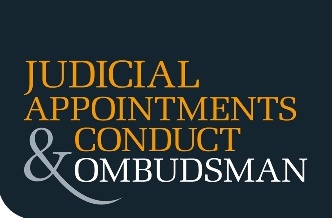NSS appeals to ombudsman over judge’s remarks on Islam
Posted: Wed, 27th Jun 2018
The National Secular Society has appealed to the judicial ombudsman over remarks a judge made to the Parsons Green bomber Ahmed Hassan.
The appeal comes after the Judicial Conduct Investigations Office (JCIO) dismissed an NSS complaint about remarks made by Mr Justice Haddon-Cave.
The NSS raised concerns after the judge made extensive references to Hassan's religion during sentencing in March. Haddon-Cave told Hassan that "the Qur'an is a book of peace", "Islam is a religion of peace" and "the Qur'an and Islam forbid anything extreme".
He told Hassan that perpetrating terror to "cause corruption in the land" is "one of the most severe crimes in Islam" and said his actions had "violated the Qur'an and Islam".
The JCIO, which considers complaints about judicial office holders' conduct, said Haddon-Cave's reference to the Qur'an being "a book of peace" was "founded on case law".
The JCIO accepted Haddon-Cave's claim that his theological comments were "not in the operative part of the sentencing remarks". It also accepted his claim that there was "a legitimate public interest in courts making similar 'final remarks' in order to address Islamophobia which can be fuelled by cases such as Parsons Green".
The NSS had said the judge's remarks undermined the principle of neutrality and impartiality and may have given rise to the perception that Mr Hassan was being dealt with differently on account of his religion.
In its appeal to the ombudsman the NSS argued that the JCIO had too readily accepted the judge's view that his interpretation of the Qur'an was based on "case law" without noting that he was merely referring to remarks made by himself in a previous case. Haddon-Cave had cited his own words, made during a defamation case in 2016 (Begg v BBC), as the precedent.
The NSS's appeal also questioned the validity of the JCIO's claim that part of his sentencing remarks were not "operative".
Stephen Evans, the NSS's chief executive, said: "The judge's remarks were undoubtedly well-intentioned but profoundly unwise. Rather than seeking to intrude a private view into the sentencing process, the judge should have confined himself to the task of sentencing Mr Hassan under secular law.
"The state does not employ judges to promote a particular view of religion. Upholding the secular nature of the legal system is essential if we are to ensure everyone is treated equally under the law.
"We believe the JCIO failed to handle our complaint properly and we have therefore requested that the ombudsman directs the JCIO to reconsider the matter."
Haddon-Cave dwelt even more heavily on Islamic theology in the Begg case than he did when sentencing Hassan. Paragraphs 87 to 133 of the Begg judgement were almost entirely based on a consideration of Islamic theology. They include 10 examples of "'extremist' Islamic positions" and the following lines:
- "It is common ground that Islam is a religion of peace. The Qur'an is a book of peace"
- "Islam includes unconditional respect for humanity regardless of faith, since all human beings are God's creatures"
- "Islam forbids anything extreme. This includes extremism in religion"
- "Whenever most people use the word jihad, they are almost always referring (incorrectly) to qital, i.e. armed combat"
- "In so far as it is relevant to do so, it is clear in my view that the Qur'an permits only defensive jihad"
- "Islam forbids terrorism."
While you're here
Our news and opinion content is an important part of our campaigns work. Many articles involve a lot of research by our campaigns team. If you value this output, please consider supporting us today.


